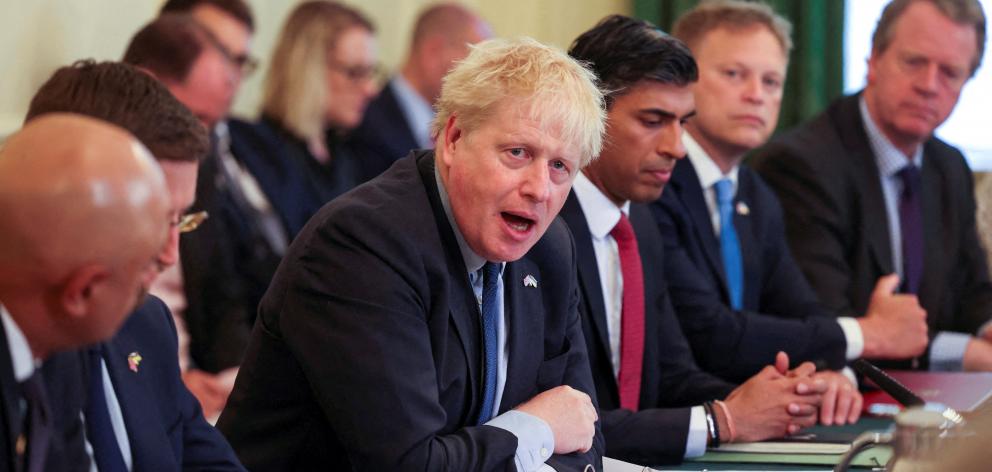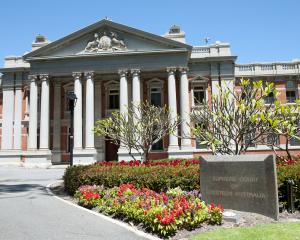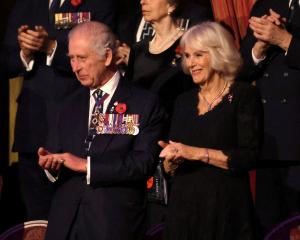British Prime Minister Boris Johnson is trying to shore up his leadership, setting out a raft of new policies to ministers after narrowly surviving a confidence vote that revealed the scale of the threat to his position.
Johnson won the ballot of Conservative Party law-makers on Monday evening by 211 votes to 148 - enough to avoid having to immediately resign but a larger than anticipated rebellion within his party that leaves him wounded and battling to win back the confidence of his colleagues and the general public.
His first challenge is to convince his most senior allies, some of whom would have been likely to run to replace him if he had been forced out, that he will be able to move on from questions about his leadership.
Johnson on Tuesday thanked Cabinet ministers for their support as he urged them to push through reforms to lower costs for consumers, businesses and government.
"We're able now to draw a line under the issues that our opponents want to talk about, and we're able to get on with talking about what I think the people in this country want us to," Johnson told his Cabinet in televised remarks.
MPs in Johnson's party called the confidence vote after months of scandal over lockdown-breaking parties at the heart of government and criticism of his response to an inflation-fuelled surge in the cost of living.
At issue is Johnson's integrity. His opponents accuse him of being a habitual liar and he faces an investigation into whether he mislead parliament in his explanations over the series of parties held in Downing Street - his office and residence - while Britons were following strict lockdown rules during the Covid-19 pandemic.
Police have fined him over one such gathering.
Johnson used the Cabinet meeting to set out his vision for the coming weeks, including new policies to reduce the cost of childcare and to help more people buy their own homes.
The Prime Minister plans a speech on housing this week, he will make a speech on how to boost the economy next week and the government plans to send a first group of asylum seekers to Rwanda on June 14, as he seeks to move on from the divisive confidence vote, a Conservative party source said.
In a boost to Johnson's hopes that he can still play a role as an international statesman, Ukrainian President Volodymyr Zelenskiy welcomed his survival.
"I am very happy about it," Zelenskiy told an event hosted by the Financial Times. "I'm glad we haven't lost a very important ally, this is great news."
Johnson is popular in Ukraine because Britain has been quick to supply weapons, starting with anti-tank weapons in January, a month before the Russian invasion.

'Pyrrhic victory'
But William Hague, who led the Conservative Party from 1997 to 2001, said Johnson's premiership is no longer "viable" and he should "turn his mind to getting out" to provide a fresh start for the party.
Hague said Johnson would find carrying on would be like driving down the motorway with two flat tyres.
The front pages of British newspapers offered little comfort that the vote was, as Johnson described it in the aftermath on Monday, a decisive result that allows him to refocus on his political priorities.
The Daily Telegraph, Johnson's former employer, called the result a "hollow victory.
Calling the result a "pyrrhic victory", the Times leader column said the narrow win left Johnson's political authority badly dented.
Conservative Party rules mean he is safe from another confidence vote for the next 12 months, but those rules could technically be changed if there is enough political will to do so.
In 2018, Johnson's predecessor Theresa May won a larger percentage of a similar confidence vote only to resign six months later.
Call for tougher ethics rules
An anti-corruption group wants tougher ethics rules for politicians after Johnson's government watered down a code of conduct in the midst of an outcry over rule-breaking by the Prime Minister himself.
A day after 41% of lawmakers from the ruling Conservative Party tried to oust Johnson as their leader, Transparency International UK called for reforms to restore trust in politics and ensure its oversight.
"Recent events have demonstrated how long-standing conventions around ethical standards in public life are no longer observed as a matter of course, and provide a poor check against misconduct by those in power," Daniel Bruce, Chief Executive of Transparency International UK, said on Tuesday.
"This slipping of standards and the decisions arising from it risks fuelling inequality, holding back our economy, and undermining effective responses to crises here at home."
The group called for the Ministerial Code, which sets out standards of conduct for senior politicians, to be made statutory to prevent it from being discarded or disregarded by the prime minister of the day, among other changes.
Last month, the government announced alterations to its ethics rules which meant ministers who breached the code would no longer be expected to resign.
On Monday, Conservative lawmaker John Penrose quit as the government's anti-corruption champion, saying it was clear Johnson broke the code.
Johnson told parliament last year he had not attended parties when they were barred during Covid lockdowns. He was subsequently fined by police for having attended a party in his Downing Street office but he said he had not misled parliament because at the time he believed the event was work-related and not a party.
PM's Covid response 'a joke'

A leading airline industry official has blasted British politicians for criticizing long airport lines and cancelled flights once Covid cases eased and in turn assailed Johnson's own response to the pandemic.
“You look at the UK, Boris Johnson, he highlights one of the reasons why he should continue to be prime minister as being the way he handled the pandemic. What a joke. They should have done a hell of a lot better,” Willie Walsh, director general of the International Air Transport Association (IATA), told the Paris Air Forum.
In response, a British Department for Transport spokesperson said the United Kingdom was the first country in the G7 to remove all travel restrictions, but its priority was protecting public health and the measures it introduced "bought vital time for the rollout of our successful vaccine programme."
Earlier this month British Transport Secretary Grant Shapps told airlines to stop selling tickets for flights they cannot staff, while Deputy Prime Minister Dominic Raab recently told Sky News that carriers should have recruited more. Both men serve in Johnson's Cabinet.
Walsh said airlines could not have recruited staff earlier this year when British traffic was down and industry feared the prospect of new Covid measures.
“You have the politicians saying airlines should have ramped up sooner. No, they shouldn’t," Walsh said. "Airlines would have gone out of business had they done what these idiot politicians are saying they should have done."
The Department for Transport said that aviation, which was provided £8 billion of support during the pandemic, "must step up recruitment to make sure disruption is kept to a minimum.”
A snapback in air travel led to long lines at some British airports, as well as in Amsterdam, Dublin and Toronto, as airport managers struggled to fill jobs.
Walsh, a former British Airways and IAG ICAG.L boss, has attributed congestion to delays in getting clearances for airport staff but said the situation is manageable and limited to some airports and airlines. He argued aviation should have been more forceful in challenging government-mandated Covid border closures which he said did little to curb the virus.













